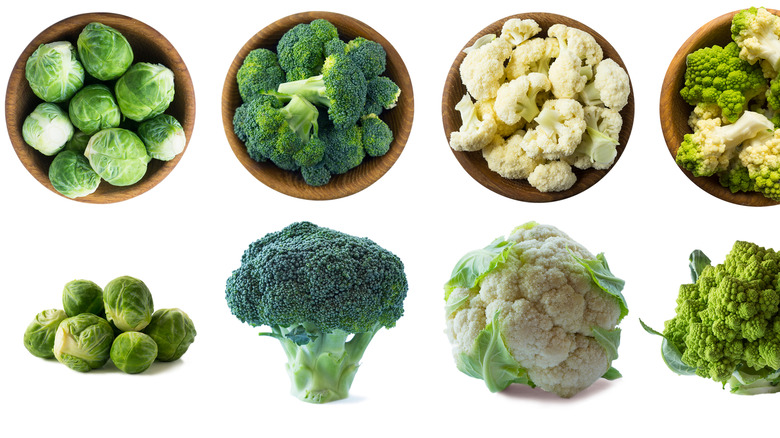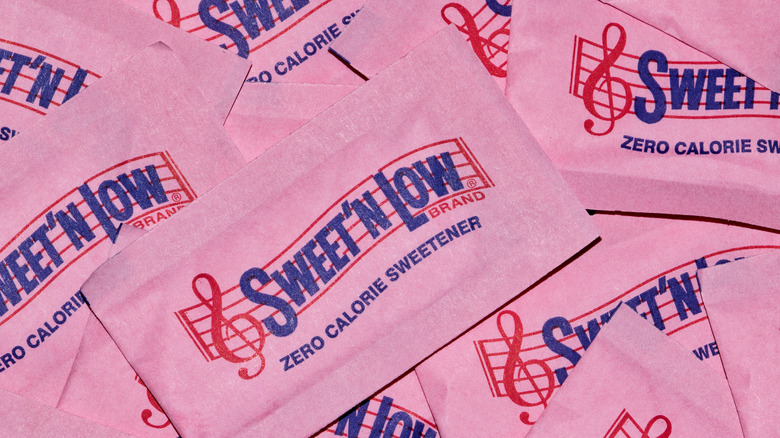Why Your Stomach Gets Upset When You Start A Diet
When you start to change your eating habits and commit to a healthy diet, it only makes sense to assume you'll start feeling great right away. Unfortunately, this isn't always the case. It's not uncommon to experience stomach upset soon after making the switch. Side effects of suddenly eating healthier can include feeling gassy, bloated, or nauseous (via Livestrong).
If you're experiencing these unwelcome symptoms for more than a few days, it's a good idea to consult your doctor to rule out food sensitivities or allergies, or even more serious issues. There are many potential causes of upset stomach (per Healthline), including anxiety, indigestion, food poisoning, stomach flu, norovirus, gallbladder issues, kidney stones, gastritis, abdominal adhesions, irritable bowel syndrome (IBS), and even cancer.
Once you have determined that your upset stomach isn't connected to any of these health conditions, you can begin to analyze why your new diet is giving your gut such grief.
Some healthy foods can cause gas
One way people improve their diet is by eating fewer simple carbs that are high in sugar, and upping their consumption of complex carbs that are rich in fiber. Toby Smithson, RDN, LDN, CDE, a spokesman for the Academy of Nutrition and Dietetics told Everyday Health that eating more fibrous foods can upset the stomach, particularly if you weren't consuming enough fiber before you started the diet you're on now.
Substituting fiber-rich vegetables like Brussels sprouts, broccoli, and cabbage for veggies with less fiber like asparagus tips, spinach, or zucchini can help thwart a negative gut reaction (via Healthline). In terms of fruit, you can swap peaches, apples, and pears for cantaloupe, honeydew, or watermelon. Avoiding dairy can be helpful, as dairy also can trigger stomach issues. Moreover, consider staying away from (or at least minimizing consumption of) high-fiber foods like beans, nuts, seeds, bread, pasta, rice, oatmeal, as well as tough or processed meat and spicy foods.
All this doesn't mean you cannot eat fiber at all, especially since most Americans aren't getting enough of it (per Today). While 25 grams of fiber is ideal, a low fiber diet can drop down to 10 grams. If you believe too much fiber is causing flare ups of stomach issues, be sure to keep track of your fiber intake.
Sugar substitutes can cause stomach issues
Another ingredient that may trigger stomach issues for you is artificial sweetener. It would seem that when you're overhauling a diet of junk foods and watching your calorie intake, sugar substitutes would be a good choice. But healthy diet aside, you just might have an intolerance for them.
Some people just don't digest sugar substitutes very well, notes Dr. David Talabiska, a gastroenterologist at Geisinger. Unfortunately, common artificial sweeteners such as aspartame and sucralose – found in drinks and foods that are labeled "diet" or "sugar-free" – can cause some of us to make urgent trips to the bathroom.
If this information has you reconsidering sugar substitutes, don't give up on them just yet. U.S. News shared nine "GI neutral" sweeteners that are easily absorbed by the digestive tract. Glucose, sucrose (like maple syrup), stevia, monkfruit extract, aspartame (Equal), saccharin (Sweet'n Low), and acesulfame potassium are better replacements, if used in moderation.



